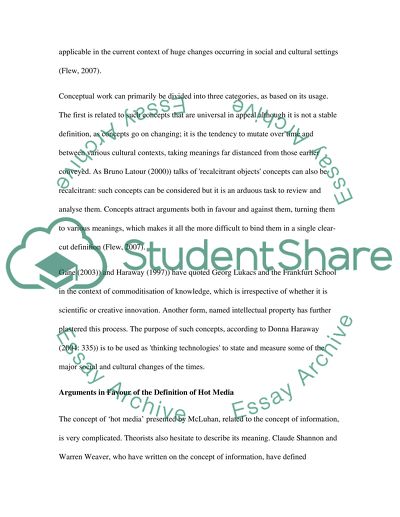Cite this document
(“Concept of McLuhan's definition of Hot media Assignment”, n.d.)
Retrieved from https://studentshare.org/marketing/1440859-argue-for-or-against-a-concept-of-mcluhanyies
Retrieved from https://studentshare.org/marketing/1440859-argue-for-or-against-a-concept-of-mcluhanyies
(Concept of McLuhan'S Definition of Hot Media Assignment)
https://studentshare.org/marketing/1440859-argue-for-or-against-a-concept-of-mcluhanyies.
https://studentshare.org/marketing/1440859-argue-for-or-against-a-concept-of-mcluhanyies.
“Concept of McLuhan'S Definition of Hot Media Assignment”, n.d. https://studentshare.org/marketing/1440859-argue-for-or-against-a-concept-of-mcluhanyies.


